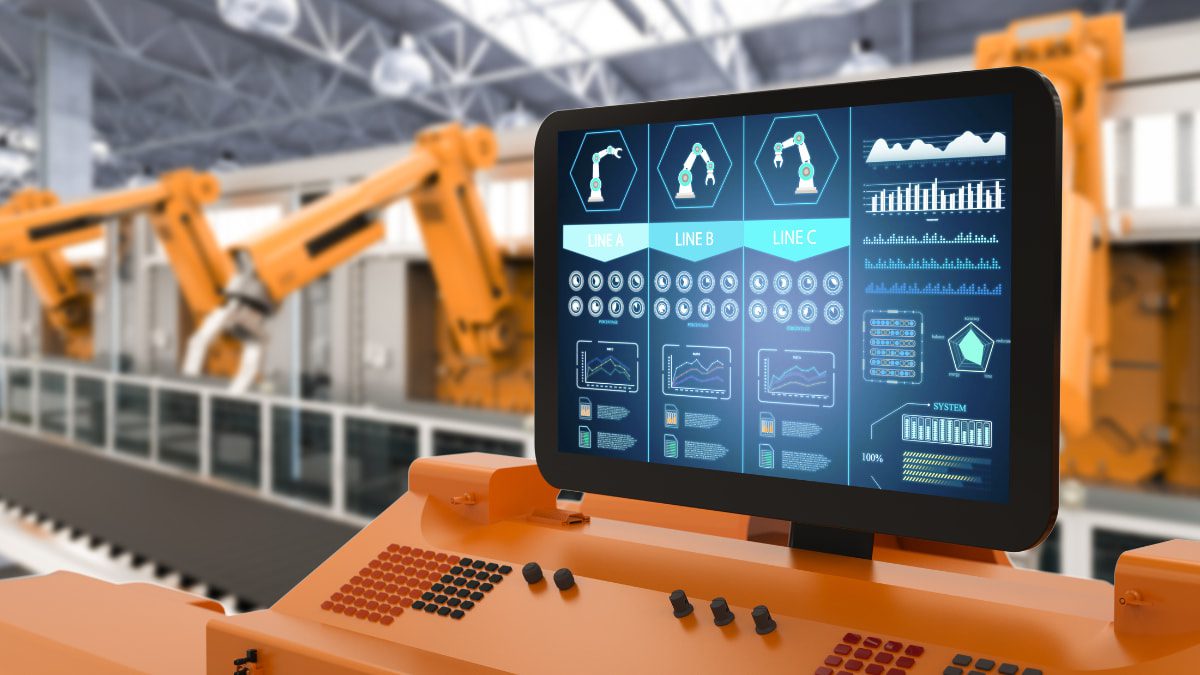Data is transforming how manufacturers approach automation.
Using real-time data to build bespoke automation systems that allow for better decision making, reduce downtime, and boost efficiency across the production line is what manufacturers across all sectors are striving for as sustainability and agility become operational cornerstones.
Yet, according to IBM, approximately 68% of data never gets fully analysed, meaning businesses aren’t reaping the benefits of the data they have at their fingertips.
Why data-driven automation is crucial
Introducing custom automation makes it easier for manufacturers to harness actionable insights in complex and highly regulated environments, using clean and accurate data to achieve improved results.
Data-driven automation also allows manufacturers to manage large volumes of data faster. Removing the tedious task of inputting data manually (which also eliminates errors), you can now have real-time data, allowing you to be more informed and make decisions faster.
With these insights, you can streamline workflows and increase operational efficiency, which in turn leads to an increase in productivity and output for manufacturers.
Working smarter in this way generates significant cost savings and creates a faster time to market.
With the right data automation systems, manufacturers can also focus on other areas such as AI and machine learning projects to strengthen production lines and turnover.
Smarter manufacturing starts here
Unlocking smarter manufacturing starts with:
Inline Monitoring
An early detection system that uses the data it receives to allow manufacturers to implement immediate corrective action across processes and machinery, preventing costly downtime and defects on the production line.
Inline monitoring manages process control, which is vital for ensuring consistency in quality. It also helps to eliminate delays from traditional lab sampling, which can lead to a reduction in production lead time.
Using data analytics in this capacity ensures efficient use of resources as you gain continuous feedback, and real-time information and data, so you can make faster and more informed decisions.
For example, in chemical processing, inline monitoring would allow you to automatically adjust process parameters such as chemical feed rates or temperatures, based on the data. Maintaining quality, increasing visibility, and reducing human intervention (supporting an increase in safety in the workplace).
Predictive Maintenance
Predictive maintenance removes inefficient maintenance strategies, helping to reduce costs and improve productivity.
Helping to identify anomalies and replace components before they fail, predictive maintenance helps to move manufacturers from being reactive to becoming more proactive.
With fewer equipment failures, manufacturers can experience minimised downtime, improved safety as you use the data to predict potential issues before they become complete failures (early warning signs are detected faster), an increase in productivity as you reduce the need for repairs, and better resource allocation.
Process Validation
Ensuring product quality and safety, process validation also supports regulatory compliance and waste reduction.
Consistently supporting the delivery of products that meet predetermined specifications, with process validation, you can confirm that products are safe, of high quality, and fit for their intended use.
This helps to build customer satisfaction and trust, and also the manufacturer’s reputation.
Process validation can also be a regulatory requirement for the manufacture of medical devices, hence its importance in the industry. Supporting companies to gain entry, meet industry standards, streamline operations, and minimise the risk of costly product recalls.
Data Automation Industry Examples
Medical device manufacturing – using visual inspection systems and automated testing, manufacturers can ensure devices meet exact specifications. In addition, automation also minimises the need for human intervention in controlled environments, reducing contamination risk and allowing ISO standards to be maintained. Offering enhanced compliance, data-driven automation in these areas allows you to build detailed audit trails, ensuring traceability and achieving faster time to market.
Green tech manufacturing – reduce waste through precise control of material usage. Using real-time data, you can monitor, control, and optimise production lines to achieve high levels of energy efficiency and control pollution output effectively.
Lab tech manufacturing – from temperature monitoring, scheduling systems, using barcoding for sampling, tracking, and traceability, unlocking valuable data insights in your production lines, can create integrated workflows leading to more efficient operations.
Smarter Manufacturing
Unlocking smarter manufacturing starts with analysing and using your data to its full potential and using this to develop bespoke data-driven automation systems and components that support your manufacturing processes and production lines.
It is about creating opportunities to improve efficiencies, increase safety, meet regulatory requirements, and increase production output, all with the view of reducing costs and increasing turnover.
At Innomech, we work with UK manufacturers to design and develop purpose-built automated systems and machines to support productivity, compliance, and profitability.
We work with you and your systems and processes to develop bespoke automation solutions that will provide you with the best and most successful outcomes.
Speak to a member of our team today to find out more.

